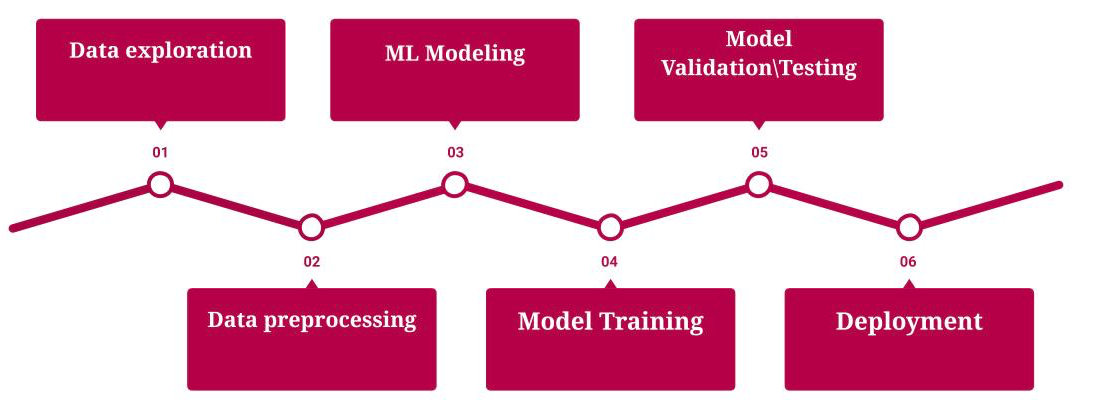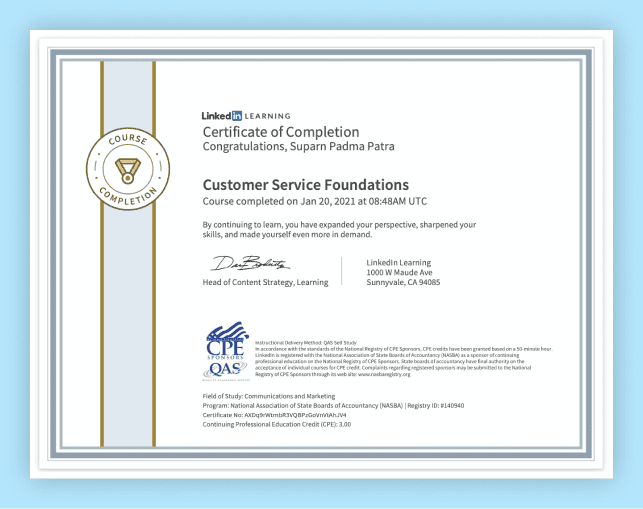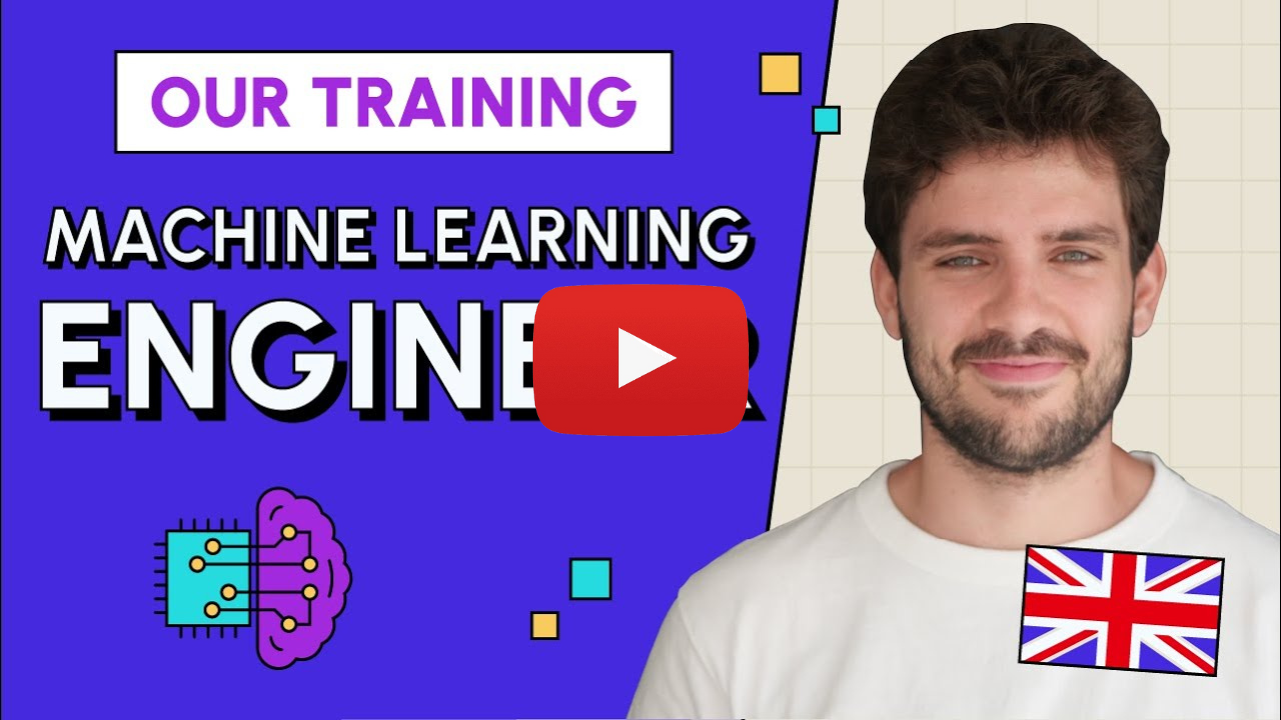All Categories
Featured
Table of Contents
- – Facts About Software Engineer Wants To Learn M...
- – The 2-Minute Rule for How To Become A Machine ...
- – The Single Strategy To Use For Machine Learni...
- – The Definitive Guide for Machine Learning Course
- – All about Software Engineering For Ai-enable...
- – Machine Learning Is Still Too Hard For Softw...
- – 5 Simple Techniques For Software Engineering...
Some individuals believe that that's dishonesty. If someone else did it, I'm going to use what that person did. I'm compeling myself to believe via the feasible solutions.
Dig a little bit deeper in the mathematics at the beginning, just so I can develop that foundation. Santiago: Lastly, lesson number seven. I do not believe that you have to comprehend the nuts and bolts of every algorithm before you utilize it.
I would have to go and inspect back to really get a better instinct. That does not mean that I can not address things making use of neural networks? It goes back to our sorting instance I believe that's simply bullshit recommendations.
As an engineer, I've dealt with several, many systems and I've made use of numerous, several points that I do not comprehend the nuts and screws of how it functions, also though I recognize the influence that they have. That's the last lesson on that thread. Alexey: The funny thing is when I think of all these collections like Scikit-Learn the algorithms they use inside to execute, for instance, logistic regression or another thing, are not the exact same as the formulas we examine in maker discovering classes.
Facts About Software Engineer Wants To Learn Ml Revealed
So also if we attempted to discover to obtain all these essentials of artificial intelligence, at the end, the formulas that these libraries make use of are various. ? (30:22) Santiago: Yeah, absolutely. I believe we require a great deal extra pragmatism in the sector. Make a lot more of an impact. Or concentrating on delivering value and a little much less of purism.

I normally speak to those that want to function in the industry that desire to have their effect there. I do not risk to speak regarding that because I do not recognize.
Right there outside, in the market, pragmatism goes a lengthy means for sure. Santiago: There you go, yeah. Alexey: It is an excellent motivational speech.
The 2-Minute Rule for How To Become A Machine Learning Engineer (2025 Guide)
One of the points I wanted to ask you. I am taking a note to speak about coming to be much better at coding. Initially, allow's cover a couple of points. (32:50) Alexey: Let's begin with core tools and structures that you require to learn to in fact transition. Let's claim I am a software application engineer.
I understand Java. I understand SQL. I understand just how to use Git. I recognize Bash. Possibly I know Docker. All these things. And I become aware of artificial intelligence, it seems like a great thing. What are the core devices and frameworks? Yes, I watched this video and I obtain persuaded that I do not require to obtain deep into mathematics.
What are the core tools and structures that I require to learn to do this? (33:10) Santiago: Yeah, definitely. Wonderful concern. I assume, top, you must start discovering a bit of Python. Considering that you currently understand Java, I do not believe it's going to be a substantial change for you.
Not since Python is the very same as Java, however in a week, you're gon na get a whole lot of the distinctions there. Santiago: Then you obtain specific core devices that are going to be utilized throughout your entire profession.
The Single Strategy To Use For Machine Learning Is Still Too Hard For Software Engineers
You get SciKit Learn for the collection of maker discovering algorithms. Those are devices that you're going to have to be making use of. I do not suggest just going and discovering about them out of the blue.
We can speak about certain courses later. Take one of those training courses that are mosting likely to begin introducing you to some problems and to some core ideas of machine discovering. Santiago: There is a training course in Kaggle which is an introduction. I don't remember the name, however if you most likely to Kaggle, they have tutorials there absolutely free.
What's excellent regarding it is that the only requirement for you is to know Python. They're mosting likely to offer an issue and tell you exactly how to make use of choice trees to fix that particular trouble. I assume that process is very effective, since you go from no maker learning background, to understanding what the problem is and why you can not fix it with what you understand now, which is straight software application design practices.
The Definitive Guide for Machine Learning Course
On the other hand, ML engineers focus on structure and deploying equipment discovering models. They concentrate on training versions with information to make forecasts or automate jobs. While there is overlap, AI engineers handle more varied AI applications, while ML designers have a narrower concentrate on artificial intelligence algorithms and their functional application.

Machine understanding engineers focus on establishing and releasing device understanding models right into manufacturing systems. They work on design, making sure models are scalable, reliable, and incorporated right into applications. On the other hand, information scientists have a wider role that includes information collection, cleansing, expedition, and building versions. They are usually in charge of removing understandings and making data-driven choices.
As organizations significantly adopt AI and equipment learning modern technologies, the need for skilled experts expands. Maker learning designers work on advanced tasks, add to development, and have competitive incomes.
ML is fundamentally different from conventional software advancement as it concentrates on training computers to gain from data, as opposed to programs explicit regulations that are implemented methodically. Unpredictability of results: You are possibly used to creating code with predictable outcomes, whether your feature runs when or a thousand times. In ML, nonetheless, the results are much less specific.

Pre-training and fine-tuning: Exactly how these designs are trained on substantial datasets and afterwards fine-tuned for certain tasks. Applications of LLMs: Such as text generation, sentiment analysis and info search and access. Papers like "Interest is All You Need" by Vaswani et al., which presented transformers. On the internet tutorials and programs focusing on NLP and transformers, such as the Hugging Face training course on transformers.
All about Software Engineering For Ai-enabled Systems (Se4ai)
The capability to manage codebases, merge adjustments, and solve problems is just as essential in ML development as it remains in typical software projects. The abilities established in debugging and screening software application applications are very transferable. While the context might change from debugging application logic to determining problems in data processing or version training the underlying principles of methodical investigation, theory testing, and repetitive improvement are the very same.
Machine discovering, at its core, is heavily dependent on statistics and probability concept. These are crucial for recognizing just how algorithms discover from data, make forecasts, and evaluate their efficiency.
For those thinking about LLMs, an extensive understanding of deep knowing architectures is beneficial. This includes not only the mechanics of semantic networks yet also the design of details versions for different usage instances, like CNNs (Convolutional Neural Networks) for photo handling and RNNs (Recurring Neural Networks) and transformers for sequential information and natural language processing.
You should be mindful of these problems and discover strategies for recognizing, reducing, and connecting concerning prejudice in ML designs. This consists of the prospective influence of automated decisions and the ethical ramifications. Lots of models, specifically LLMs, require significant computational sources that are typically provided by cloud systems like AWS, Google Cloud, and Azure.
Building these skills will certainly not just facilitate a successful transition into ML but likewise ensure that programmers can contribute successfully and responsibly to the innovation of this dynamic area. Theory is important, but nothing beats hands-on experience. Begin servicing projects that allow you to apply what you have actually found out in a functional context.
Take part in competitors: Join platforms like Kaggle to get involved in NLP competitors. Develop your jobs: Begin with easy applications, such as a chatbot or a text summarization tool, and slowly boost complexity. The field of ML and LLMs is quickly progressing, with new advancements and technologies emerging regularly. Remaining updated with the most up to date research and trends is essential.
Machine Learning Is Still Too Hard For Software Engineers for Dummies
Contribute to open-source projects or write blog site articles concerning your discovering trip and jobs. As you gain know-how, start looking for possibilities to integrate ML and LLMs into your work, or seek brand-new duties concentrated on these modern technologies.

Vectors, matrices, and their role in ML formulas. Terms like version, dataset, features, tags, training, reasoning, and validation. Data collection, preprocessing methods, model training, evaluation procedures, and deployment considerations.
Choice Trees and Random Forests: Intuitive and interpretable models. Assistance Vector Machines: Maximum margin category. Matching issue kinds with suitable versions. Stabilizing performance and complexity. Fundamental framework of semantic networks: neurons, layers, activation features. Layered computation and onward proliferation. Feedforward Networks, Convolutional Neural Networks (CNNs), Recurrent Neural Networks (RNNs). Photo recognition, sequence forecast, and time-series analysis.
Constant Integration/Continuous Deployment (CI/CD) for ML process. Model tracking, versioning, and efficiency tracking. Identifying and attending to adjustments in design efficiency over time.
5 Simple Techniques For Software Engineering In The Age Of Ai

You'll be introduced to 3 of the most relevant elements of the AI/ML self-control; monitored learning, neural networks, and deep discovering. You'll comprehend the distinctions between conventional programming and device knowing by hands-on development in supervised knowing before developing out intricate distributed applications with neural networks.
This training course functions as an overview to machine lear ... Show A lot more.
Table of Contents
- – Facts About Software Engineer Wants To Learn M...
- – The 2-Minute Rule for How To Become A Machine ...
- – The Single Strategy To Use For Machine Learni...
- – The Definitive Guide for Machine Learning Course
- – All about Software Engineering For Ai-enable...
- – Machine Learning Is Still Too Hard For Softw...
- – 5 Simple Techniques For Software Engineering...
Latest Posts
Software Developer (Sde) Interview & Placement Guide – How To Stand Out
The Best Strategies For Answering Faang Behavioral Interview Questions
The Easy Way To Prepare For Software Engineering Interviews – A Beginner’s Guide
More
Latest Posts
Software Developer (Sde) Interview & Placement Guide – How To Stand Out
The Best Strategies For Answering Faang Behavioral Interview Questions
The Easy Way To Prepare For Software Engineering Interviews – A Beginner’s Guide